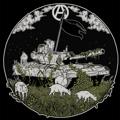Eric a publié une critique de Homo Domesticus par James C. Scott
De l'humain sauvage à sa domestication
5 étoiles
Ouvrage passionnant où l'auteur déboulonne des idées reçues sur le passage des humains à l'époque néolithique en s'appuyant sur les récentes découvertes de l'archéologie. Il est démontré ici que ce passage ne s'est pas fait sans heurs et qu'il est à l'origine des premières formes de domination et d'esclavage.
Ouvrage passionnant où l'auteur déboulonne des idées reçues sur le passage des humains à l'époque néolithique en s'appuyant sur les récentes découvertes de l'archéologie. Il est démontré ici que ce passage ne s'est pas fait sans heurs et qu'il est à l'origine des premières formes de domination et d'esclavage.

